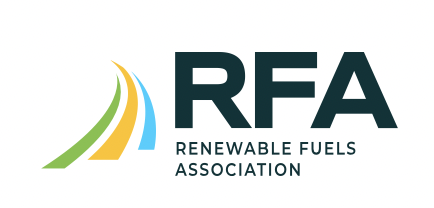Renewable Fuels Association argues ethanol SAF case to IRS

Renewable Fuels Association logo
The US Renewable Fuels Association (RFA) has written to the Internal Revenue Service (IRS) to stress the importance of ethanol for Sustainable Aviation Fuel (SAF).
It was replying to the IRS’ request for comments following the introduction of the US Inflation Reduction Act and the SAF blender’s credit.
“SAF production presents a major new market opportunity for ethanol producers, as the lifecycle carbon footprint of ethanol continues to shrink and the economics of ethanol-to-jet fuel processes continue to improve,” said Geoff Cooper, president and CEO,RFA. “The ethanol industry sees tremendous promise and potential in the emerging market for sustainable aviation fuels. The ethanol industry has the scale and capacity to deliver the volume of feedstock to meet SAF volume targets for the decades to come.”
The IRS asked for comments in December.
“The IRA’s tax provisions will need to be interpreted correctly for the legislation to achieve its goals. In particular, lifecycle analysis (LCA) methods, flexibility for individual producers in the calculation of individual fuel pathways in order to encourage greenhouse gas reduction, and timely guidance on regulations for tax incentives to meet the timeframes of the IRA’s programs for carbon capture, utilization, and storage (45Q) will be essential to the legislation’s success,” said Cooper.
The association also wants the IRS to use the Department of Energy Argonne National Laboratory’s Greenhouse gases, Regulated Emissions, and Energy use in Technologies (GREET) model.
“Although lawmakers opted to allow the use ICAO/CORSIA for LCA of SAF pathways, they also left the door open for the use of an “other similar methodology,” said Cooper. “Using Argonne GREET for SAF would ensure that the same, consistent methodology is used for both aviation and non-aviation fuels. Using two different models for the purposes of tax credit generation (i.e., one model for SAF, and a separate model for non-aviation fuels) could create administrative challenges for both industry and regulators, and it could also create perverse incentives or disincentives for the production of certain low-carbon fuels in the marketplace.”
The full letter from the RFA is here.
